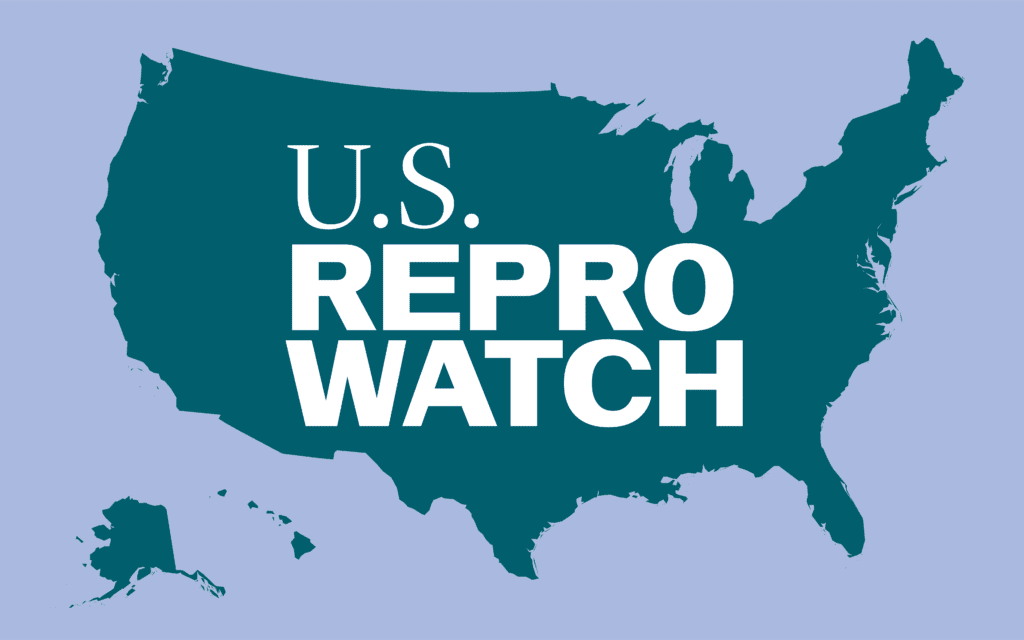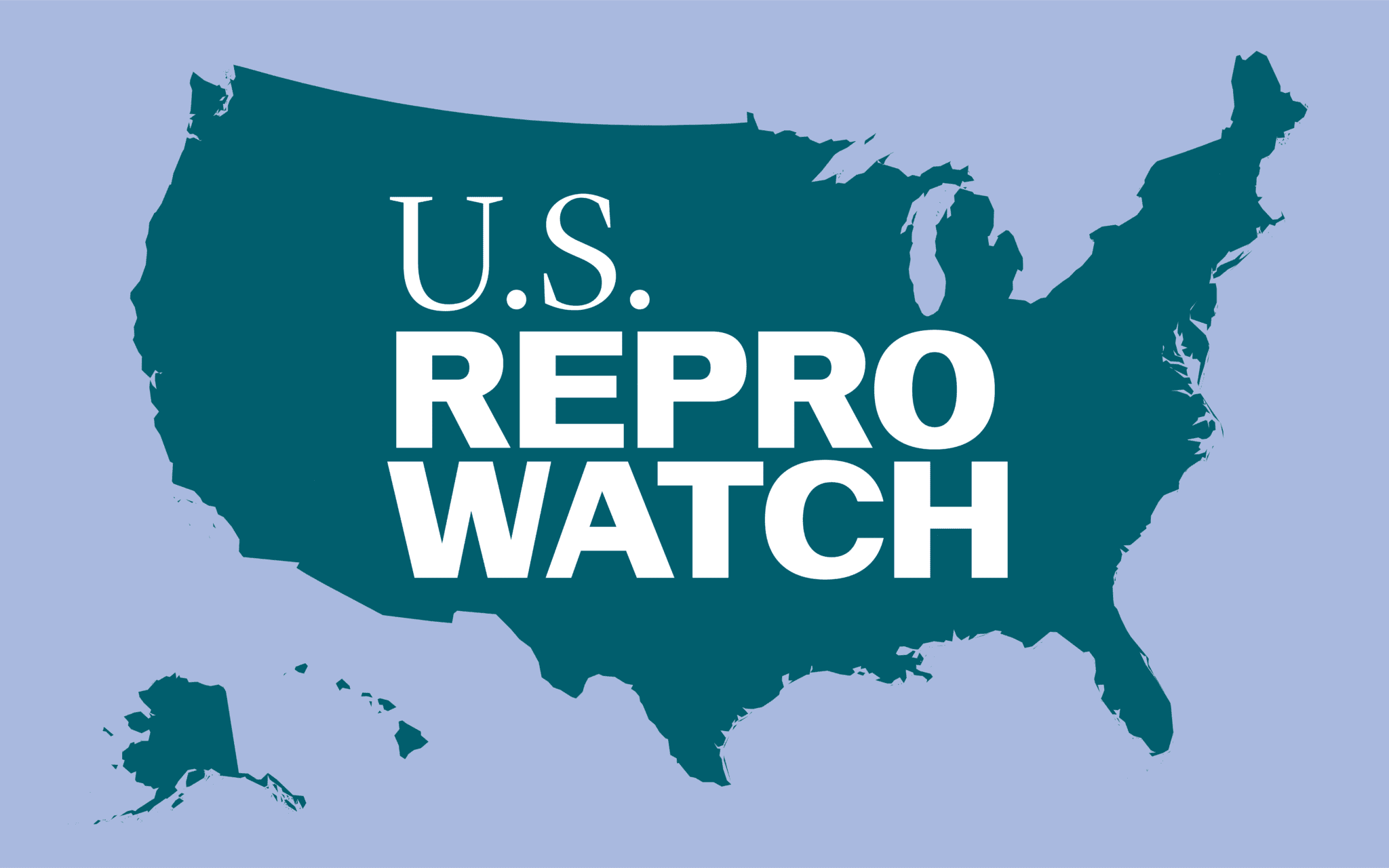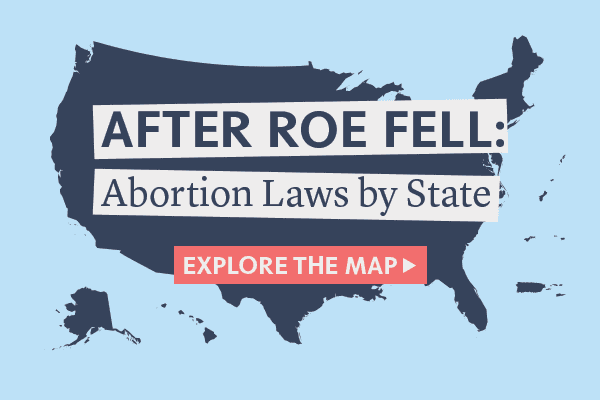U.S. Repro Watch, December 15
Court battles for abortion ban exceptions, SCOTUS to weigh in on abortion medication case, more clinic closings, and other news on U.S. reproductive rights.

U.S. Repro Watch provides periodic updates on news of interest on U.S. reproductive rights. Here are a few recent items you won’t want to miss:
1. Her pregnancy had no chance of survival and her health and future fertility were at risk. But the Texas Supreme Court said Kate Cox still couldn’t get an abortion in the state.
- “Kate’s case is proof that exceptions don’t work, and it’s dangerous to be pregnant in any state with an abortion ban,” said Molly Duane, senior staff attorney at the Center for Reproductive Rights, about the December 11 ruling by the Texas Supreme Court in Cox v. Texas.
- Cox had recently received a fatal fetal diagnosis and was trying to avoid dangerous risks to her health and future fertility. She was forced to leave Texas to obtain the time-sensitive care she needed.
Read more.
Cox v. Texas
This is the first case brought since the overturning of Roe v. Wade on behalf of a pregnant woman seeking emergency abortion care.
2. An Idaho court heard arguments yesterday on the state’s motion to dismiss a case seeking to clarify the medical exceptions to the state’s abortion bans.
- The case, Adkins v. State of Idaho, was filed by the Center in September on behalf of four women who were denied abortion care despite facing dangerous pregnancy complications, two doctors, and the Idaho Academy of Family Physicians (IAFP).
- “We’re here to let people know that this is not a hypothetical situation,” said lead plaintiff Jennifer Adkins. “This is happening every single day to many families, and we need to be able to provide care to patients without the intrusion of politics.”
- John Adkins, Jennifer’s husband, added, “Let me speak directly to the men and say, your wives, your daughters, your sisters, your grandchildren are at risk. It is not safe to be pregnant in the state of Idaho, and their complete silence is complicity in that.”
3. The U.S. Supreme Court agreed to weigh in on another major abortion case. This one could threaten access to abortion medication nationwide.
- The Court’s announcement came on December 13 in response to a request by the U.S. Department of Justice for review of a lower court ruling that attempted to reinstate burdensome restrictions on mifepristone, one of two drugs used for medication abortion. That order has not taken effect.
- The case, Alliance for Hippocratic Medicine v. FDA, was filed by an anti-abortion group seeking to revoke the FDA’s approval of the drug and other FDA actions to increase its access.
- The Supreme Court is expected to hear the case sometime in the spring and issue a ruling before the end of its term in June 2024.
U.S. Repro Watch
Read previous U.S. Repro Watch posts.
4. The New Mexico Supreme Court heard arguments December 13 on whether to strike down local anti-abortion ordinances.
- Although abortion is legal in the state, some cities and counties have passed ordinances in an attempt to restrict access to care.
- New Mexico borders Texas and Oklahoma, where abortion is illegal.
Did you know?
Clinics close post-Dobbs: A new report from the Abortion Care Network shows that 23 independently owned reproductive health clinics closed in 2023. That was on top of the 42 independent clinics that closed in 2022, leaving over a dozen states, mainly in the South and Midwest, without a single abortion clinic. Many community members—especially those uninsured and living on low incomes— relied on such clinics for routine gynecological care.
International news: Poland’s near-total ban on abortion violated a pregnant woman’s rights, the European Court of Human Rights ruled on December 14. The woman, whose fetus was diagnosed with Trisomy 21, had been scheduled to have an abortion in Poland when a new restriction went into effect, forcing her to travel to the Netherlands for care.
In more news from Poland, the country’s new Prime Minister, Donald Tusk, has pledged to take action to repeal Poland’s near-total abortion ban and legalize abortion to ensure that women can safely make personal decisions about their pregnancies.



